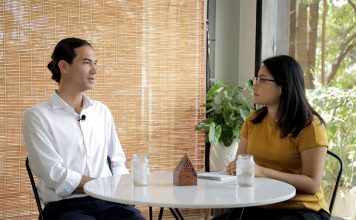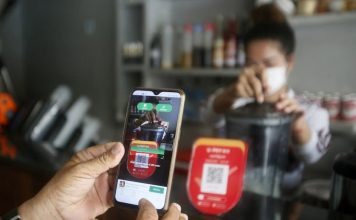
Foreign entrepreneurs who set up business in the Kingdom often mention excessively high staff turnovers and conflicts in the workplace brought about by the clash of cultures as factors undermining their bottom line. We have a chat with Yulia Khouri, co-founder and CEO of leading research and business consulting firm INNOV8, to find out her views on the subject.
B2B: What’s the most important lesson in relation to human resources that you’ve learned since working in Cambodia?
Khouri: I believe that the most important lesson for all expats to remember is that while we are bringing our vast knowledge and expertise to Cambodia, there is an existent wealth of local expertise that must not be overlooked or discarded. The biggest fallacy that expat professionals often promote is the idea that “if it worked in my country, it will work here”. While Cambodia is a developing market, it has its own unique conditions, history and development path, both human- and market-wise. As such, we must adapt our experience to this unique marketplace and, ideally, attempt to successfully integrate local and international best practices into the workplace as well as all new projects and services offered to the market.
B2B: Staff retention seems to be a common problem in Cambodia. What advice can you give to new businesses to overcome this challenge?
Khouri: We are very aware of staff retention problems in Cambodia. Luckily, INNOV8 has not faced such issue since we started our operations here. We strongly believe this is due to the fact that we approach and see our staff–from cleaners to the executives–as an integral part of INNOV8’s success. That means our staff participates in the success of the organisation through yearly bonus structures, fairly relaxed schedules, regular capacity building training, career development, promotions and employee benefits, such as accident and health insurance and assistance in education for staff’s children. In some projects, our staff benefits from profit sharing as well. In short, we believe retaining your staff is possible only if your company is willing to provide necessary positive working conditions, fair remuneration and professional career development equally to both the expat and the local staff.
B2B: What are some key cultural differences to be aware of when dealing with Khmer colleagues, employees or supervisors, and how could they affect the work output?
Khouri: We actually haven’t found many significant differences except perhaps language barriers. We did see that Khmer women are often less likely to take on leadership roles and have a harder time asserting their decisions with male colleagues or/and expats. However, this is easily resolved with consistent empowerment and equal opportunity practices in the workplace. We do it through many channels, such as career development, leadership coaching and capacity building for women leaders, among others. We also hold workshops and presentations of relevant organisations for the benefit of our staff. For instance, INNOV8 has been an on-going donor for the Women’s Peace Makers, an NGO that works in Cambodia to battle domestic violence and to implement and promote the empowerment of women and girls here. Their yearly presentations to our staff provide an excellent medium to nurture the discussion of gender roles and gender inequality.
B2B: In workplaces with both Khmer and foreign staff, what are some of the most common misunderstandings or conflicts relating to differences in culture?
Khouri: We didn’t face anything that we could identify as a consistent negative pattern. We face our share of battles and problems, but nothing that is unusual or stands out. We see that our Khmer staff are eager to learn and to succeed and to grow. We strongly feel that the company executives must create and nurture an environment of mutual benefits, cooperation, cultural sensitivity, positive working conditions and equal opportunities in career development and remuneration.
B2B: Compared to students in the West, how ready and qualified are fresh graduates in Cambodia to join the workforce?
Khouri: It varies by industry. In general, students in the West gain a lot of experience through various internships, summer jobs and volunteer jobs related to their field of study, while they are still pursuing their degree. As such, when ready to enter the full-time workforce they are ready to face the realities of the professional working environment and apply the hands-on knowledge and academic theory in their jobs. Volunteerism, internships and other forms of on-the-job training is still in its natal stages here for university students. Memorising books and academic papers is helpful, but if theory is not set in practice, it often remains useless and untapped.
B2B: What do you find as the most effective recruitment method or tool in Cambodia? How important of a recruitment tool has social media become?
Khouri: Word of mouth followed by using professional recruitment agents. I cannot comment on the social media and recruitment at all as we have never used the tool to help with our recruitment.
B2B: What have been the biggest challenges and pitfalls of starting (and running) your own business in Cambodia?
Khouri: The lack of information resources for new businesses would be one. The tax rules and labour laws are constantly changing and are often unclear or misunderstood. Unfortunately some people exploit that and take advantage of the SME owners and the pitfalls are inevitable. As such, hiring expert and trustworthy accountant and legal firms to feed you with a steady flow of information about the changes in local laws and regulations would be the priority.








